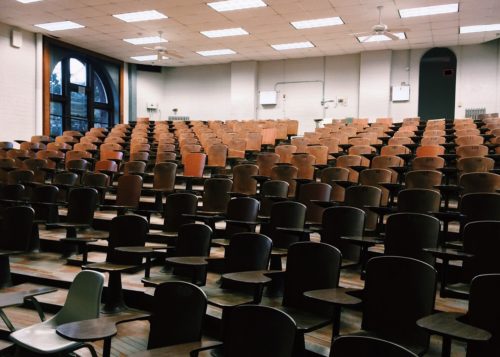
Free speech plays an essential role in fostering intellectual growth and open dialogue on college campuses. Universities are meant to be spaces where ideas can be exchanged, debated, and critiqued. However, the balance between maintaining an open forum for expression and ensuring a safe, respectful learning environment is often difficult to strike. For students, understanding how free speech rights intersect with campus policies can be complex, especially as both public and private institutions grapple with these issues. Continue reading and reach out to the skilled higher education attorneys here at Allen Harris Law to learn about your free speech rights on campus, and how we can help if you believe your rights have been violated.
What Rights Do Students Have to Free Speech on College Campuses?
At public universities, students’ free speech rights are protected by the First Amendment of the U.S. Constitution. This means that government-run schools cannot restrict speech based on its content or viewpoint, with a few exceptions for speech that incites violence, constitutes harassment, or disrupts the educational environment. However, even in these cases, the boundaries can be murky.
Private colleges, on the other hand, are not directly bound by the First Amendment. However, many private institutions voluntarily commit to upholding free speech principles in their student codes of conduct – and these codes of conduct and other policies can be contractually binding on the school. Students at these schools should be familiar with the institution’s specific policies regarding speech to ensure they understand their rights.
How Do Colleges Regulate Free Speech While Maintaining Campus Order?
While students enjoy the right to free speech, colleges and universities also have a legitimate interest in maintaining order and ensuring that educational activities are not unreasonably disrupted. To manage this, many schools implement “time, place, and manner” restrictions. These rules are designed to regulate when, where, and how speech can occur, without suppressing the content of the speech itself.
For example, a university might limit large demonstrations to designated free speech zones or require that protests be held during specific hours to avoid interfering with classes.
In order not to violate the First Amendment, these “time, place, and manner” restrictions must be viewpoint-neutral. university cannot impose regulations on one group based on its views while giving another group more freedom to express opposing ideas. If students feel their school is selectively enforcing speech policies, this could signal a violation of their rights.
Additionally, while colleges must protect students from harassment or discrimination, they must also be careful not to label protected speech as harassment in order to censor dissenting viewpoints. If a student is accused of harassment just for expressing a controversial or unpopular viewpoint, this is a red flag that the university may be violating the student’s free speech rights.
What Should I Do If My College Limits My Right to Free Speech?
If you believe your free speech rights have been limited or violated by your college or university, the first step is to familiarize yourself with the institution’s speech policies. Understanding whether the restrictions are based on time, place, and manner or if they are targeting your viewpoint specifically will help you determine if your rights may have been infringed.
In cases where you feel the restrictions are unjustified, it is important to document everything. Keep records of communications with university officials, policies cited, and any actions taken against you or your group.
If the issue persists, or if you believe the school has violated your rights under the First Amendment (at a public university) or its own policies (at a private institution), it may be time to seek legal counsel. Allen Harris Law has extensive experience handling university free speech cases and can help you assess whether the school’s actions were lawful or if you have a valid case against the university for infringing on your First Amendment rights.